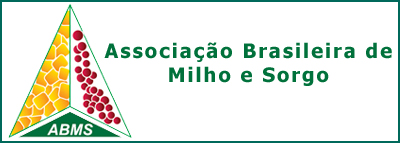PRODUCTIVE POTENTIAL OF SECOND GROWING SEASON OF MAIZE IN DIFFERENT SOWING TIMES SUBJECTED TO SUPPLEMENTARY IRRIGATION
DOI:
https://doi.org/10.18512/1980-6477/rbms.v17n3p408-419Keywords:
Water balance, productivity, irrigation effect.Abstract
ABSTRACT - Understanding effects of climate variability over agricultural systems may support decisions to improve yield and environmental sustainability. Maize production systems in second season have a significant participation in Brazilian economy, and its yield depends of sowing times and soil water content. This work aimed to study maize yield in four sowing dates and supplementary irrigation in the second growing season in Brazil. The field experiment was developed in the 2015/2016 agricultural year in a completely randomized blocks design. Sowing dates were 01/27/2017, 02/09/2016, 02/25/2016 and 03/11/2016, and two irrigation conditions were adopted: the first without irrigation and the second with a supplementary irrigation of over 130% of the reference evapotranspiration (ET0). Yield performance indicated that the best result was obtained for the 01/27/2017 sowing date. The effects of supplementary irrigation affected the yield for the dates 02/25/2016 and 03/11/2016.
Keywords: water balance, productivity, irrigation effect, Zea mays L.
POTENCIAL PRODUTIVO DO MILHO PARA ÉPOCAS DE SEMEADURA EM SEGUNDA SAFRA SUBMETIDO À IRRIGAÇÃO SUPLEMENTAR
RESUMO – O estudo dos efeitos da variabilidade climática na agricultura pode auxiliar nas tomadas de decisão para a melhoria contínua da produtividade e sustentabilidade ambiental. O milho de segunda safra no Brasil tem participação significativa na economia, e sua produtividade está vinculada, entre outros fatores, à pontualidade da semeadura e ao teor de água no solo. O objetivo deste estudo foi avaliar o efeito das épocas de semeadura em segunda safra no desempenho agronômico da cultura do milho em Tangará da Serra-MT, evidenciando a irrigação suplementar para semeaduras antecipadas, indicando a melhor época. O experimento foi realizado no ano agrícola de 2015/2016 com a cultivar de ciclo precoce AG 7088, em quatro épocas de semeadura (27/01/2016; 09/02/2016; 25/02/2016 e 11/03/2016), sob irrigação suplementar a 130% da evapotranspiração de referência (ET0) e sem irrigação, em delineamento experimental de blocos ao acaso com quatro repetições e parcelas de área útil de 7,2 m2. Foram avaliadas as características agronômicas para determinar o desempenho produtivo da cultura, em relação às épocas de semeadura em sistema irrigado e não irrigado. A semeadura realizada em 27/01 apresentou os melhores resultados de produtividade. A irrigação suplementar promoveu efeito sobre a produtividade nas épocas com restrição de chuvas (25/02/2016 e 11/03/2016).
Palavras-chave: balanço hídrico, produtividade, efeito da irrigação, Zea mays L.
Downloads
Published
How to Cite
Issue
Section
License
Authors retain copyright and grant the journal right of first publication with the work simultaneously licensed under the Creative Commons Attribution License that allows the sharing of work and recognition of the work of authorship and initial publication in this journal.
Authors are able to take on additional contracts separately for non-exclusive distribution of the version of the paper published in this journal (eg, in an institutional repository or publish as a book), with acknowledgment of its initial publication in this journal.
Authors are permitted and encouraged to post their work online (eg, in institutional repositories or on their website) at any point before or during the editorial process, as this may leadto productive exchanges, as well as increase the impact and citation of published work.



